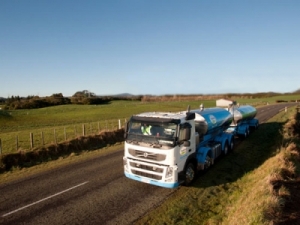Fonterra’s exit from Australia ‘a major event’
Fonterra’s impending exit from the Australian dairy industry is a major event but the story doesn’t change too much for farmers.
 A focus on effectiveness, efficiency and innovation during factory winter maintenance is saving Fonterra money.
A focus on effectiveness, efficiency and innovation during factory winter maintenance is saving Fonterra money.
Fonterra says a focus on effectiveness, efficiency and innovation during factory winter maintenance is saving money.
Director of NZ manufacturing Mark Leslie says the winter shutdown is a key time of preparation for the season ahead.
"Each year we process 18 billion L of milk, mostly in spring. The work we're doing now readies us for that peak period."
More effectiveness and efficiency at maintaining sites is their focus, Leslie says. "We've always been efficient in our maintenance projects, so the challenge this year was to... do things better, faster and smarter."
Hundreds of factory staff are working on about 500 projects nationwide, ranging from major capital works to minor overhauls.
Winter shutdown manager at Te Rapa, Blair Bond, refers to an "owner's mindset" among the manufacturing staff.
"We treat the assets as if we were their owners – putting ourselves in our farmers' shoes and thinking about how we can do things more effectively and [save money]."
Some work will lead to change in the way the plant processes milk during the milking season. Bond gives the example of the D4 evaporator: the staff suggested splitting the process into stages, which will allow the evaporator to run 6% longer – more milk processed each day.
"It's year-round for us. Year-long we talk to other sites about what worked for them and leverage our collective strength."
Te Rapa now has a year-round asset care approach to maintaining and servicing plant.
Fonterra’s impending exit from the Australian dairy industry is a major event but the story doesn’t change too much for farmers.
Expect greater collaboration between Massey University’s school of Agriculture and Environment and Ireland’s leading agriculture university, the University College of Dublin (UCD), in the future.
A partnership between Torere Macadamias Ltd and the Riddet Institute aims to unlock value from macadamia nuts while growing the next generation of Māori agribusiness researchers.
A new partnership between Dairy Women’s Network (DWN) and NZAgbiz aims to make evidence-based calf rearing practices accessible to all farm teams.
Despite some trying circumstances recently, the cherry season looks set to emerge on top of things.
Changed logos on shirts otherwise it will be business as usual when Fonterra’s consumer and related businesses are expected to change hands next month.